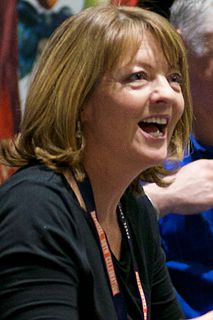A Quote by Brian Aldiss
Science fiction is for real, space opera is for fun.
Related Quotes
Literary science fiction is a very, very narrow band of the publishing business. I love science fiction in more of a pop-culture sense. And by the way, the line between science fiction and reality has blurred a lot in my life doing deep ocean expeditions and working on actual space projects and so on. So I tend to be more fascinated by the reality of the science-fiction world in which we live.
Science fiction is the most important literature in the history of the world, because it's the history of ideas, the history of our civilization birthing itself. ...Science fiction is central to everything we've ever done, and people who make fun of science fiction writers don't know what they're talking about.
The real origin of science fiction lay in the seventeeth-century novels of exploration in fabulous lands. Therefore Jules Verne's story of travel to the moon is not science fiction because they go by rocket but because of where they go. It would be as much science fiction if they went by rubber band.



































